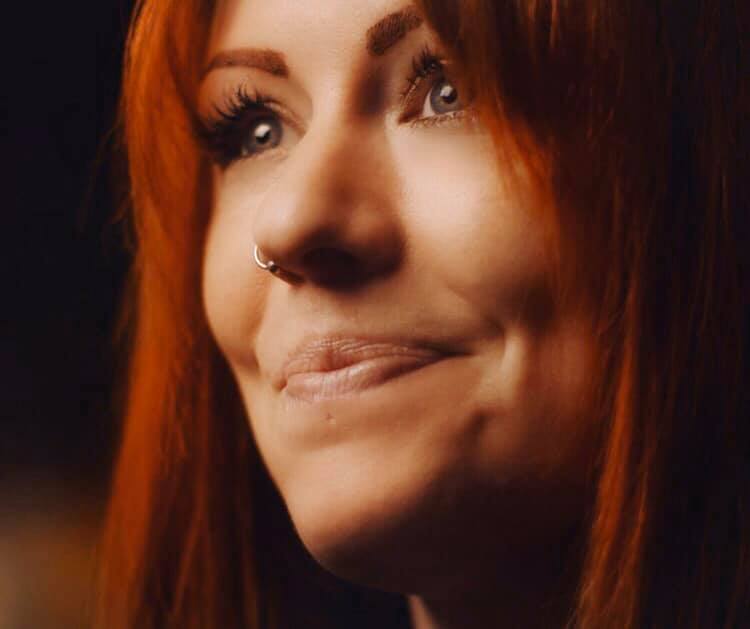Child Protection Under Covid-19: ‘Parents Are Simply on Their Knees’

Five years ago, “Annie” (a pseudonym) launched a website, Surviving Safeguarding: a Parent’s Guide to the Child Protection Process. Through the site and social media, parents contact her for advice about their interactions with social services and family courts. The article below is based on an interview of Annie by ATD Fourth World, conducted on 21 April 2020. It was first published on 3 June by Social Work 2020 Under Covid-19 Magazine.
How has Covid-19 changed things?
Since the beginning of the lockdown, visits to my website tripled from 15,000 to 45,000 hits a month. The sheer volume is a shocking increase. I’m also struck that parents who contact me for advice are sending messages at 2 or 4 am; the times when people feel the most isolated and upset. The reasons for this uptick fall into three categories:
-
Legal proceedings have stopped and parents don’t know when their case will be heard or when it will end;
-
Contact visits were cancelled abruptly and parents have no information about what this means and are left without strategies to manage their feelings around this;
-
Parents are simply on their knees struggling to meet their social worker’s expectations despite the enormity of living on a very low income and having the children out of school.
In a time like this, there’s such a primal urge for parents and children to know how the others are. For the first time ever on this scale, I’m hearing that adoptive parents are now willing to extend information to birth parents to let them know that their children are safe, and so that the children will know their birth parents are safe. Relationships with foster carers are either improving, or are under strain.
Do you see a link between poverty and child protection proceedings?
These families all live in poverty. They have nothing. You can’t dismiss the impact of poverty on a parent’s ability to function. When your kids are hungry or when you can’t afford heat, you can’t fix it just by playing with them. It helps, but it doesn’t fix it.
Society still has not grasped the correlation between poverty and child protection. It’s a class issue. In the main, parents don’t set out to fail our children.
We don’t set out to live in substandard housing on a rough council estate with only fifty quid a week, choosing between gas on the meter, or food. No one chooses that. But there’s an “othering” of struggling parents who are deemed not good enough by people who have nice warm homes and a decent income.
There’s a lot of pressure put on social workers to react. Social workers want to be reflective; but they have to firefight. They can’t always do the job they set out to do, particularly at the moment. The expectation is that parents will be able to demonstrate sustained changes in a confined time. But that’s such a big ask, and even more so during a lockdown.
A great deal of us are coping with a massive drop in income and the cheap brands aren’t always available, so we have less and less money left. We have no choice but to take buses and queue outside supermarkets. And when you’re a lone parent, sometimes you have no choice but to bring your children on the bus to help you carry the groceries home — but others demonise you for that, sitting in judgement. Seeing panic buying and empty shelves is a hugely triggering time. I’ve felt it myself and I’m in an incredibly fortunate position of having a job.
People need help and support. It’s hard to find the ‘new normal’ under the gaze of your social worker’s watchful eye. But I also see incredible resourcefulness and resilience from people who were barely managing before. Society has a lot to learn from them. Of course, the priority is children’s safety, but I want to see more trust and more faith in parents to find their way through.
What are you most concerned about right now?
One mother I’m aware of had her newborn removed just as the lockdown was beginning. Her social worker has said that a contact over FaceTime would be meaningless for the infant so it has not been a priority to arrange it. But it would mean so much to the mother. And now this mother is entirely unable to demonstrate her ability to parent that child. Her very real relationship with her baby was broken by intervention and it will be very difficult to rebuild it. The baby is bonding with the foster carer, who is unlikely to be the primary carer in the future, so the baby is going to have another relationship broken. Again, safety for children is paramount, but what about their human right to bond and be with their parent?
I don’t think it’s always appropriate that psychological assessments are being carried out during lockdown, unless the assessing psychologist had already formed a strong relationship with the parent. The results will be different than pre-Covid. How can that evidence be used to inform draconian decisions?
It’s exceptionally difficult for a mother to form a valid argument to defend her parenting skills when she gave birth only hours earlier. She is still bleeding and leaking breast milk.
And once her baby has been removed, she’s grieving. How can you carry out a valid psychological assessment while she’s grieving and in the context of a global pandemic?
When these cases get to court, some hearings do need to be carried out remotely — but some parents are telling me they don’t understand the technology. They don’t know where to look or where to talk. They don’t know how to consult with counsel or how to speak up or how to raise their hand. Court hearings are frightening enough, plus you have the extra layer as a parent of having that hearing concern your own child. To add the additional layer of trying to navigate the technology as well as navigate a court hearing is fraught with stress and anxiety. Understandably, hearings need to go ahead; but I am worried about parents’ ability to manage in this context.
How do you see the future after the lockdown ends?
I am concerned about the raft of referrals that will overload the system when we come out of lockdown. If a social worker already has a caseload of twenty and that shoots up to thirty, even with the best will in the world, how can they build a humane relationship with families? Children are not being seen at school at the moment — my understanding is there has only been 5% take-up of school places for those children deemed “vulnerable”. And, of course, Covid-19 is affecting all of us, including children whose worlds have also been turned upside down. They will all be reacting to that in their own ways — mine certainly are! When children return to school, will teachers see behaviours emerging as a result of coming out of lockdown that may cause them concern and may provoke unnecessary (or necessary) referrals?
I’m also concerned that vulnerable women may be getting pregnant now because they are trapped and in difficult situations.
We’ve all seen the memes joking about how many babies will be born in January; I’m deeply concerned that in January there will be a new surge in investigations and infant removals.
How will the justice system cope? How will social workers cope? And, of course, how will parents cope?
I’m worried that families who are struggling have nowhere to go right now, and that this will also cause problems when we come out of lockdown. I don’t think one day we’ll be in lockdown and the next we’ll be back to “normal”; and I think that transition will be difficult, as families will be anxious for support services to resume. I think we’re a long way off “normal” and we will all have to adjust to incremental changes as they come. That’s easier if you have a solid foundation of support — and it’s easier if you “have”. The chasm between the “haves” and “have nots” has never been wider than it is right now, during Covid-19. We are not “all in this together”, and that needs to be remembered.
The one thing that does give me hope now is the rise of mutual aid communities. Even without a central meeting place, parents can find community spirit online. For many years, I bemoaned the closure of the community centre I once relied on.
But now with the Covid mutual aid groups, suddenly asking for help is normalised. It’s okay now because everyone is asking and everyone is facing the same risks. Going forward, why can’t we destigmatise a parent needing to ask neighbours for help during a child protection investigation?
All parents deserve a helping hand with advice, access to food, or to transportation. Social workers can look to the community to help parents and they can draw on all parents as a resource.
Thank you so much for sharing your experiences and insights. We all need to be mindful of the impact of poverty on the right to family life, both under the lockdown and as we begin the difficult transition ahead.


